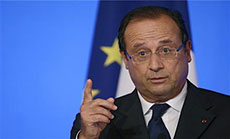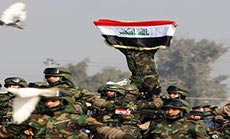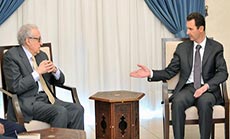Imam Khomeini’s Views About Women

Source: Press TV, 09-02-2009
By Gisoo Misha Ahmadi
Tehran - The following is an exclusive Press TV interview with the founder of the Islamic Revolution's granddaughter, Zahra Eshraqi, about the life and views of the late Imam Khomeini.
Press TV: What was the Imam's view regarding women?
Eshraqi: Thank you for giving me this opportunity to talk about the Imam. The late Imam treated his wife, daughters and granddaughters with great respect.
We never felt any gender discriminations in the family. We were never told "you are a girl, so you must do this," or "you are a boy, so you can do that".
Some of the religious decrees (Fatwa) issued by the Imam before the 1979 victory of the Islamic Revolution regarding the Islamic dress code were subsequently altered by the Imam to meet the modern needs of Iran.
The Imam urged women to assume an active role in society after the Revolution. He always said the strong will of Iranian women can change governments and give rise to social movements.
Press TV: To what extent did the Imam encourage the women in his family to pursue higher education and careers?
Eshraqi: As I mentioned before, he encouraged us in the same manner that he encouraged the boys in our family. Just as they went to university, so did the girls. Among the Imam's grandchildren, we see many doctors, engineers and lawyers.
Press TV: We talked about the Imam's decrees regarding women, but what about other issues? For example, the late Imam had a more relaxed view regarding issues such as music.
Eshraqi: Being a universal religion, Islam is very dynamic in nature. Islam is not a time-bound religion; therefore, it can evolve to meet the needs of the day and because of this, I am sure that if the Imam were here with us today, he would issue new decrees to address current problems.
As for music, I, myself, on repeated occasions asked the Imam's opinion about different melodies [after the Revolution]. I remember he said there is nothing wrong with them and told me to focus on being a good person and stay away from backbiting and slandering as these two are the sins God will not forgive.
I really got to know the Imam after the Revolution because when he was exiled to Najaf I was too small, only five.
I remember asking the Imam in Neauphle-le-Château in France about the manner I should dress and he told me that the law of Islam says a woman should dress according to the Islamic dress code, conceal herself and at the same time dress according to the norms of the society she lives in.
A woman living in Qom can wear a burqa and not stand out, but another living in another city may cover her face and by doing so, draw unnecessary attention to herself. So it all depends on the norms of one's society.
Press TV: Ms. Esghraqi, when one studies about the lives of great leaders in history, they all seem to experience a rise and fall in popularity, but in the case of the Imam we do not see this. When the Imam returned to Iran he was received with an overwhelming popular support, and we see that even after his death millions of admirers continue to mourn his loss every year on his anniversary. What do you think was the reason for the Imam's popularity?
Eshraqi: I would like to quote the Imam on this, I remember in the early years of the Revolution, one president won a landslide victory in national elections, and Imam described his victory with these words, "He won the country over by capturing the people's heart."
The same applies to the Imam; the reason for his eternal popularity is that he captured the hearts of the people and they put their trust in him.
I think the younger generation should be allowed to see the Imam in the light that the Revolutionary youth of Iran saw him and also be encouraged to ask questions about this charismatic leader so that they do not end up feeling detached from him like there is a barrier between them and the Imam because the Imam belongs to all generations.
Press TV: How would you evaluate the media's role in bridging this gap and removing the barriers from coming between the younger generations and the Imam?
Eshraqi: Not as expected.
Press TV: Where do you think the problem is?
Ms. Eshraqi: When I travel abroad it pains me to see that we still have a long way to go to show the world the true picture of Iran. There have been so many misrepresentations.
I once met an Arab lady who had seen a picture of an Iranian women dining in a restaurant and she asked me with great surprise, "Are Iranian women allowed to dine out and drive in Iran?"
To me this shows that we have not done enough to present the world with the realities of Iran.
Press TV: How often do you talk to your own son about the Imam?
Eshraqi: Quite often. He asks a lot of questions, both the ones he as a teenager has and those of his school friends. When I recount my memories of the Imam my son often says he wishes he could have met the Imam for himself and had the chance to directly ask the Imam his questions.
Comments

France’s Hollande in Qatar for Warplane Deal
9 years ago
Iraq Police Dismantles Al-Qaeda Protest Site
10 years ago

